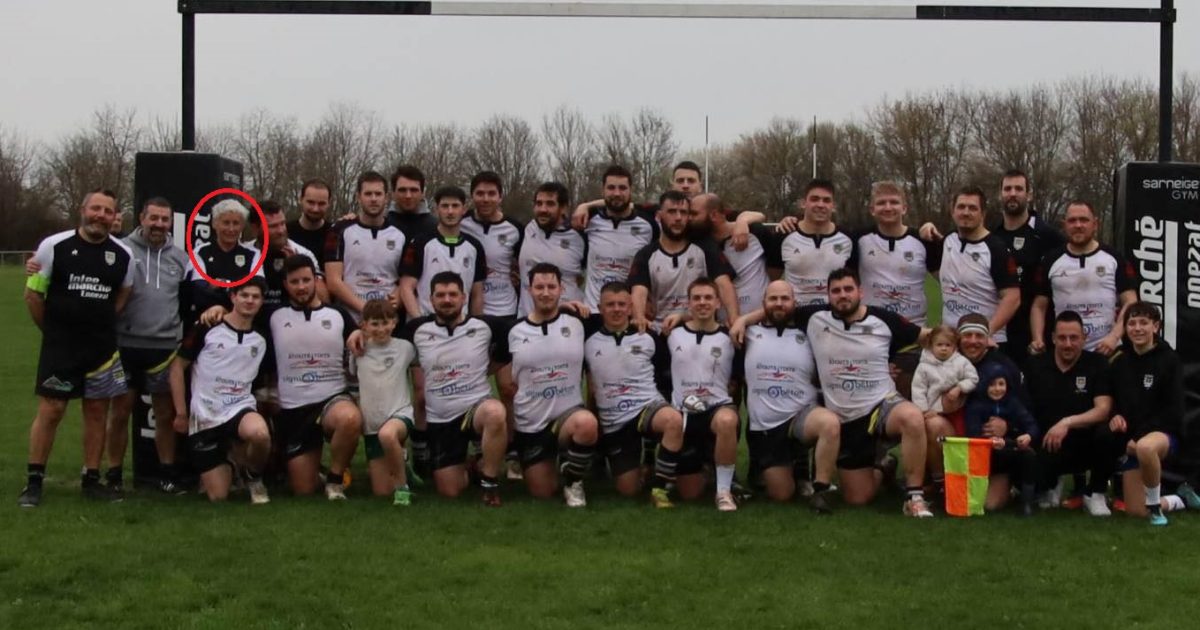Que devient Annick Hayraud, ancienne manager du XV de France féminin ?

Joueuse à Romagnat entre 1986 et 2002 et internationale française avec le XV de France féminin sur la même période, cumulant 67 sélections, Annick Hayraud a vite fait un pas de côté pour s’illustrer dans l’encadrement en devenant entraîneure de Romagnat (2002-2015) puis manager du XV de France féminin sur deux périodes (2011-2014 et 2016-2022).
Figure respectable et respectée du rugby féminin de très haut niveau, proche de ses joueuses et avec une vision du jeu correspondant à l’ADN du rugby moderne, Annick Hayraud a marqué le rugby français en participant notamment à l’éclosion du rugby féminin.
Sa carrière sur les terrains s’est terminée abruptement après une Coupe du Monde de Rugby féminin 2011 (jouée en 2022 en Nouvelle-Zélande pour cause de Covid) décevante. Non pas à cause du résultat – une médaille de bronze pour la France – mais en termes de management, coincée entre une équipe de joueuses réclamant un jeu libéré et un staff cornaqué dans des schémas plus figés.
Aujourd’hui, c’est loin des terrains internationaux qu’elle se reconstruit, chez elle, à Riom en Auvergne où elle a repris sa vie d’avant. En parallèle, elle dispense des conférences sur le thème du sport en abordant les domaines clés tels que le management, le leadership, la gestion des émotions et la cohésion d’équipe.

Qu’est-ce que vous devenez Annick Hayraud ?
J’ai repris mon ancien travail dans les services techniques et j’ai pris une petite équipe, à un petit niveau – à Ennezat à côté de chez moi – pour leur filer un coup de main. C’est une équipe de garçons, de seniors.
Est-ce que ça vous manque cet environnement de très haut niveau ?
C’est pas que ça me manque, mais j’avais vraiment besoin de faire un break ; la fin avait été très difficile. J’avais été très déçue, très touchée et j’avais besoin de me ressourcer un peu.
Et puis de partir dans un petit club amateur, c’est autre chose. C’est quelque chose que je n’avais jamais fait chez les garçons. J’avais beaucoup donné chez les filles, mais je ne l’avais jamais fait chez les garçons. C’est vraiment particulier, c’est vraiment la base du rugby amateur et c’est très intéressant. Il y a tellement de choses à faire ; ça n’a rien à voir.
C’est visiblement ce dont vous aviez besoin…
Oui, ça permet de rester au contact. Ce sont deux mondes complètement différents avec des problématiques différentes. Mais ça reste du rugby : tu entraînes du rugby, tu reprends la base, les problématiques ne sont pas du tout les mêmes…
C’est un environnement que vous n’avez pas connu lorsque vous étiez à la fédé ?
A la fédé, j’étais dans le haut niveau. Tous ces petits clubs, tu rencontres des gens, mais tu ne vois pas la réalité du terrain tous les jours comme là tu peux la vivre : la problématique du manque de joueurs, la disponibilité de bénévoles, c’est compliqué… Là, t’arrives pour jouer et t’as pas un dirigeant, ou un ou deux mais ils font tout à la fois.
C’est vraiment le rugby des villages. C’est compliqué avec les nouvelles générations qui arrivent, c’est pas pareil qu’avant… Il faut être capable de s’adapter aussi. Il y a un gros travail à faire de transmission.
Le Covid a fait aussi beaucoup de mal dans les clubs. Et ça, quand t’es en haut, t’es dans ton projet, tu veux avancer avec ton équipe. Je n’étais pas au contact, même si je pense que ce n’est jamais facile. Dès l’instant que tu es bénévole, il faut toujours œuvrer.
Comment ça s’est fait ?
Je n’avais pas prévu de reprendre un club, même si j’ai gardé ma licence de dirigeante à Romagnat ; je me disais : si elles ont besoin, je suis là. Ils sont venus me contacter et au début je n’étais pas partante. Et après je me suis dit pourquoi pas, ça me fera une expérience d’aller filer un coup de main. Ce sont des mecs sympas avec qui je passe des bons moments.
Avez-vous eu des contacts avec la FFR depuis que vous êtes partie fin décembre 2022 ?
J’ai eu aucun contact avec la fédération sauf le week-end du 27 avril (le Crunch France – Angleterre à Bordeaux, ndlr) parce qu’il y avait les dix ans du Grand Chelem de 2014. On faisait ça en l’honneur d’Isabelle Picarel (photographe talentueuse et humainement exceptionnelle de la fédération française de rugby, ndlr). C’était quelqu’un d’extraordinaire. J’ai revu une ou deux personnes de la fédération, mais sinon je n’ai plus aucun contact.
Que l’on rentre dans une année de Coupe du Monde, ça va vous manquer ?
Je ne crois pas, non. Il a fallu digérer l’étape de la Nouvelle-Zélande et après il faut que ça avance. J’ai basculé. Il faut que le rugby continue d’avancer, que les filles deviennent de plus en plus performantes. Je suis plutôt dans cette démarche plutôt que de ressasser. L’idée, c’est d’avancer.
La Coupe du Monde de Rugby Féminin 2025 en Angleterre approche. Cliquez ici pour acheter vos billets.








































